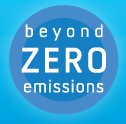The International Energy Agency (IEA) has praised an Australian plan that lays out a blueprint for the nation to shed all reliance on fossil fuels and switch to renewable energy by 2020.
The report – the Zero Carbon Australia Stationary Energy Plan – by think-tank Beyond Zero Emissions and academics from the University of Melbourne’s Energy Institute, states that by properly utilising existing renewable energy sources such as photovoltaic solar (PV), concentrated solar energy systems (CSP), solar thermal plants for storage, wind energy, and biomass fuel, combined with a range of energy efficiency measures, Australia’s future power needs could be met within ten years.
"Achieving the ten-year transition is well within Australia’s existing industrial capacity,” the Plan concludes. “Adoption of this plan promises health benefits, long-term energy security, and significant economic benefits."
One of the report’s authors, Dr Roger Dargaville, from the University of Melbourne’s Energy Institute, presented the Plan to the IEA on January 13 to a positive reception and praise for Australia’s continued focus on renewable energy technology.
"To all naysayers who have consistently argued against the practical feasibility of such a goal, this study demonstrates that it is achievable," he said.
A zero carbon Australia would not be cheap, however. At least $37 billion would have to be invested each year to make the renewable energy plan happen. It would be the equivalent, Dr Dargaville said, of adding eight dollars per week to every Australian’s electricity bill.
Although the IEA had no part in the study, or the results that made up the Energy Plan, Hugo Chandler, a senior analyst at the IEA, said: "This bold blueprint for Australia’s future energy supply is a welcome addition to the global debate on renewables. It provides a timely reminder to all countries of the importance of renewable energy sources and the role they must play in the years ahead."












































